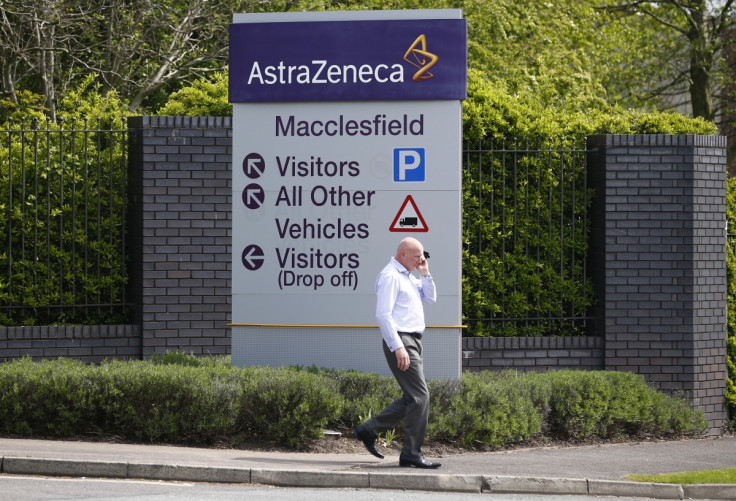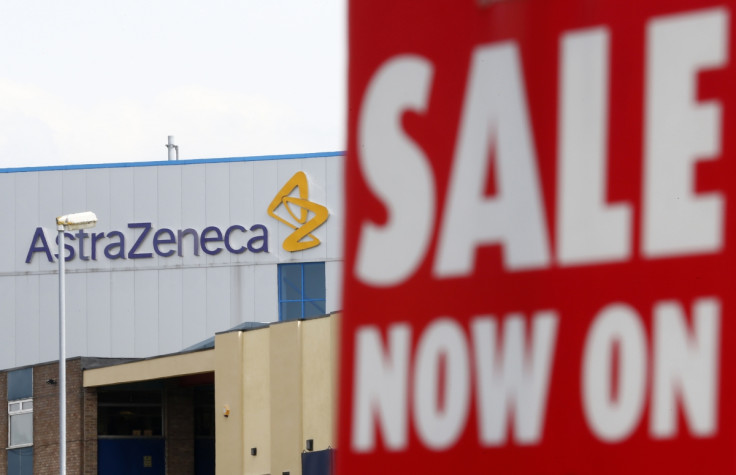Pfizer's AstraZeneca Bid: Should the UK Government Meddle?

Pfizer's hostile takeover bid for the British pharmaceutical giant AstraZeneca could lead to one of the largest mergers of all time and the UK government said it is "unapologetic" for getting involved.
But is it the right thing to do?
Britain has long toed the line between reaping the benefits from capitalism and being pushed along by socialist machinery; from our healthcare service to bailing out the banks.
While AstraZeneca has so far batted away several attempts by the US drug making giant, if two non-taxpayer owned companies did decide to merge, is it really any of our business?
Learning from the Cadbury and Kraft Takeover
The UK government's main opposition, the Labour Party, was very quick to slam the Conservative-led coalition government for being "cheerleaders" of the deal. It, of course, demanded an inquiry into the hostile bid.
However, Labour is trying to shake off its own legacy in government when the iconic British chocolate brand Cadbury was bought out by America's favourite processed cheese peddlers, Kraft, in 2010.
In fact, we can almost thank the controversial takeover of Cadbury, which has haemorrhaged hundreds of British jobs over the last four years, for the Panel of Takeovers and Mergers.
The Panel regulates the area of major mergers and eventually, in September 2011, made changes to the Takeover Code.
Furthermore, it's no surprise that Prime Minister David Cameron's office said Whitehall is making no "apologies" for actively engaging with both companies in terms of the importance of research & development (R&D), of skills, of expanding the skill base in the UK."
However, he added that the deal was "a commercial decision between shareholders" and that the British government was "very clear that that is for the shareholders and no one else".
Biggest Concerns
One of the biggest concerns for any major company merger is the potential loss of jobs across the country.
As the UK trundles along in a fragile economic recovery and 30.2 million Britons, or 6.9% of the population, are still without a job, it's no wonder that the public and politicians are on tenterhooks over how a major takeover could lead to another hole in a lucrative sector.

Pfizer has had a bad reputation in 'protecting' UK jobs. In fact, only three years ago, it shut its drug research site in Sandwich, southern England, where Viagra was invented.
It also said it planned to cut 2,000 jobs in Britain.
So, considering Pfizer's boss Ian Read has said outright that he can't "make any firm committments" on what would happen to 7,000 AstraZeneca jobs that are in the UK, if the group was bought out, it would seem that it would be in everyone's interest to know exactly how the country's labour market would be affected.
Needs of the Many Outweigh the Needs of the Few?
Pfizer has been rather prudent in declaring the overall UK economic value of the potentially massive merger by saying that it will inject $100bn (£59bn, €72bn) into the economy.
"We want to have a conversation with the government about the excitement we have about combining these portfolios, the excitement we have about the strength of UK research," said Ian Read, CEO at Pfizer.
"This combination, if it occurs, would create domiciled in the UK the largest pharmaceutical company in the world and would bring an injection of about $100bn into the UK economy."
In fact, experts say that it could create a "war chest" for the British pharmaceutical industry namely in the oncology and diabetes area, and Pfizer could use its distribution channels to increase the sales of the drugs.
Britain, regardless of the Pfizer deal, is facing tough competition from abroad where countries with smaller cost bases like China are ramping up their R&D efforts as well as production.
"What a massive deal like this may is to create a new complexion of jobs in the UK," said Professor John Lyon of the University of Warwick's Business School to IBTimes UK.
"For example, testing within the drug development process usually leads to companies choosing a place where it has lower costs, so that's a key dilemma for quality versus costs.
"However, where the US and UK add to the mix, is by providing more skilled jobs, for example in interpretation of data."
Competition Issues
Competition within a capitalist framework drives down prices, but when massive companies merge, antitrust authorities usually have to assess major deals to see if they would adversely affect market dynamics.
For example, media giants Publicis and Omnicom created the largest agency of its kind in the world after it merged. But EU authorities had to assess whether the titanic tie-up would unfairly infringe on the rest of the market.
It would only be prudent to see if the same would happen if one of the world's largest drug makers snapped up Britain's second largest pharmaceutical, behind GlaxoSmithKline.
Furthermore, while the British pharmaceutical industry faces competition from across the globe, the country is still doing pretty well in capturing a strong footing in the world rankings.

"Pharmaceutically, we rank relatively high in relation to our GDP and plays a major part in Britain's industrial make-up," said Lyons, who is also trained as a clinical biochemist, then as a chartered accountant.
"However, I think it is too early to make a call on whether a potential deal between AstraZeneca and Pfizer will hurt competition."
Above all, is it right for the government to get involved in the potentially major takeover of one of Britain's biggest companies? Yes.
Whitehall should be there to provide transparency, analysis and translation to the public about the pros and cons of the deal and how it would affect our economy.
What it shouldn't do is be any way involved with the commercial aspects of the deal.
And we may just get that.
"The commitments that have been made so far are encouraging," said Cameron in parliament.
"But let me absolutely clear, I'm not satisfied. I want more. But the way to get more is to engage. We want the investment, the jobs and the research that comes with that competitive tax system."
© Copyright IBTimes 2025. All rights reserved.






















